Sister Mary Kenneth Keller
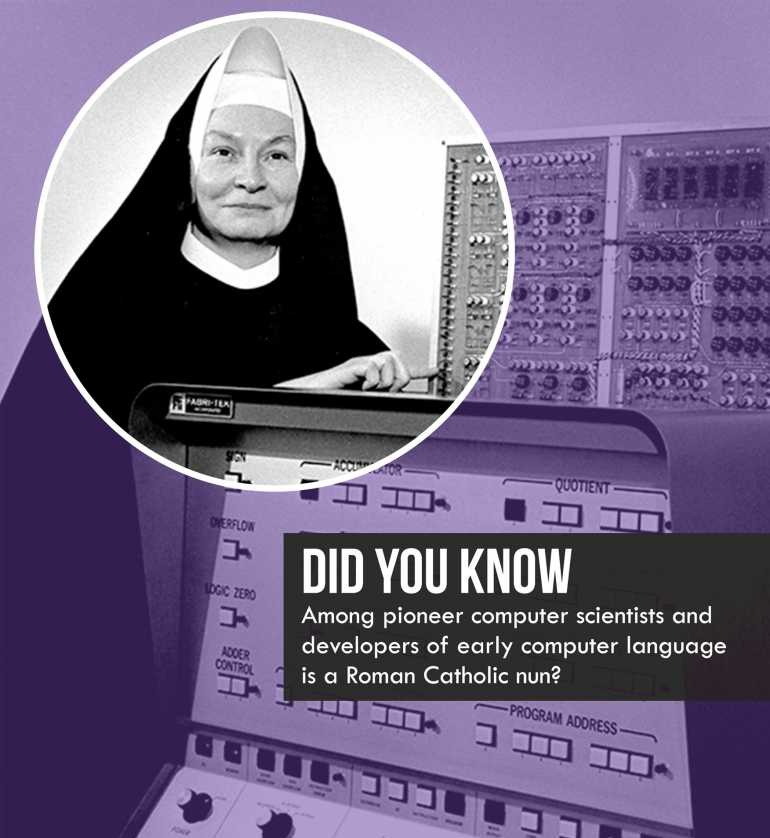
The first woman PERSON to earn a Ph. D. in computer sciences in the USA in 1965.
And worked to expand access to computers in education.
And worked to expand access to computers in education.

Born: December 17, 1913 Cleveland, Ohio, United States
Died: January 10, 1985 (aged 71) Dubuque, Iowa, United States
Alma Mater: DePaul University (BS, MS) University of Wisconsin–Madison (PhD)
Known for: BASIC Scientific career
Institutions: Clarke University
Thesis: Inductive Inference on Computer Generated Patterns (1965)
Died: January 10, 1985 (aged 71) Dubuque, Iowa, United States
Alma Mater: DePaul University (BS, MS) University of Wisconsin–Madison (PhD)
Known for: BASIC Scientific career
Institutions: Clarke University
Thesis: Inductive Inference on Computer Generated Patterns (1965)

March is Women's History Month
Let us remember Sr. Mary Kenneth Keller, BVM (Sisters of Charity of the Blessed Virgin Mary) who brilliantly distinguished herself in the male-dominated field of computer science in the 60's. Not only is she the first American woman to receive a PhD in computer science, she also helped develop the BASIC (Beginners' All-purpose Symbolic Instruction Code) programming language with originators John Kemeny and Thomas Kurtz. She pushed for the wider involvement of women in computing and urged the use of computers in education. She was a visionary regarding the potential for computers to improve access to information, as a valuable tool in learning, and in their importance in libraries. Six decades later, whether you're reading this from a mobile device, a desktop, or a laptop, know that a Catholic nun was among those who planted the seeds of modern information technology. Pax et bonum!

👩💻⌨️🖱️🖥️💽🖲️🖨️💾💻💿👨💻📀🖥️🖨️⌨️💻🖱️💽💾💿👩💻
Sister Mary Kenneth KellerMini Documentary
👇 ⌨️ 👇
https://youtu.be/T9IZ8UWGP04?si=bVcqfy-DWspgSybS
👇 ⌨️ 👇
https://youtu.be/T9IZ8UWGP04?si=bVcqfy-DWspgSybS
There are a few incorrect statements here.
- 0:29 She was born in December 1913, not 1914
- 0:39 She took her vows in 1935
- 0:45 Her bachelors ('43) was in mathematical sciences and her masters ('52) was in mathematics
- 1:48 She was possibly the first person, not just women, to get a doctorate degree although her and Irving C. Tang got their doctorates the same day, it is unclear about who got it first exactly. Although, she was definitely the first person to get a Ph.D. in CompSci bcs Irving got a D.Sc. Ph.D is a Doctor of Philosophy and a D.Sc. is a Doctor of Science (IDK why she got a Ph.D. and he got a D.Sc. couldn't find out)
- 0:39 She took her vows in 1935
- 0:45 Her bachelors ('43) was in mathematical sciences and her masters ('52) was in mathematics
- 1:48 She was possibly the first person, not just women, to get a doctorate degree although her and Irving C. Tang got their doctorates the same day, it is unclear about who got it first exactly. Although, she was definitely the first person to get a Ph.D. in CompSci bcs Irving got a D.Sc. Ph.D is a Doctor of Philosophy and a D.Sc. is a Doctor of Science (IDK why she got a Ph.D. and he got a D.Sc. couldn't find out)
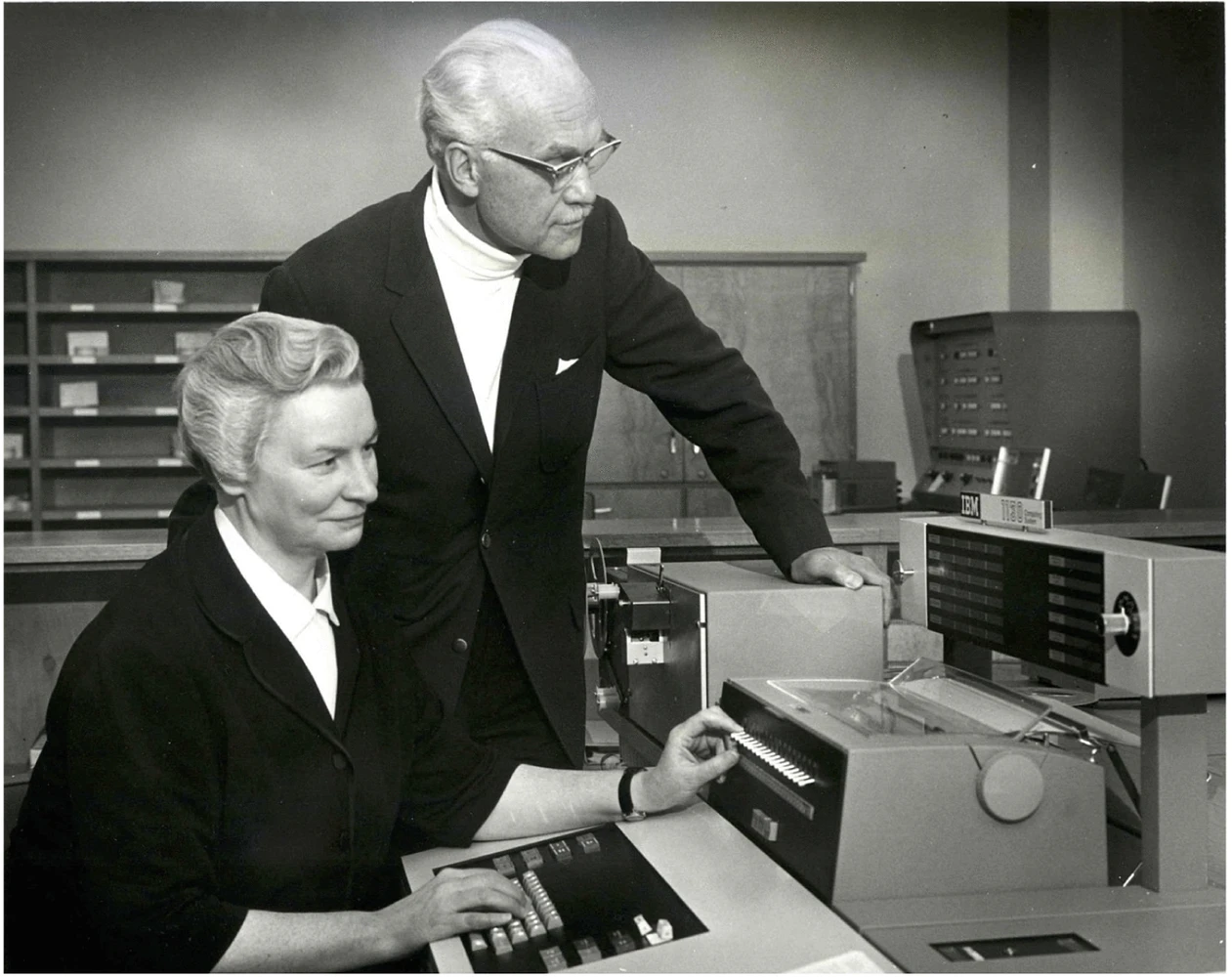
“73-year-young R. Buckminster Fuller is taking a two-day crash course in computer science and programming from Sister Mary Kenneth”.
Mary Kenneth Keller, B.V.M. was an American Catholic religious sister, educator and pioneer in computer science. She was the first person to earn a Ph.D. in computer science in the United States. Keller and Irving C. Tang were the first two recipients of computer science doctorates (Keller's Ph.D. and Tang's D.Sc. were awarded on the same day).
Keller was born in Cleveland, Ohio, on December 17, 1913, to John Adam Keller and Catherine Josephine (née Sullivan) Keller. She entered the Sisters of Charity of the Blessed Virgin Mary in 1932 and took her vows with that religious congregation in 1940. She completed both her B.S. (Bachelor of Science) in Mathematics in 1943 and her M.S. (Master of Science) in Mathematics and Physics in 1953 from DePaul University in Chicago. Keller earned her Ph.D. (Doctor of Philosophy) from the University of Wisconsin–Madison in 1965. Her dissertation, Inductive Inference on Computer Generated Patterns,
focused on "constructing algorithms that performed analytic
differentiation on algebraic expression, written in CDC FORTRAN 63."
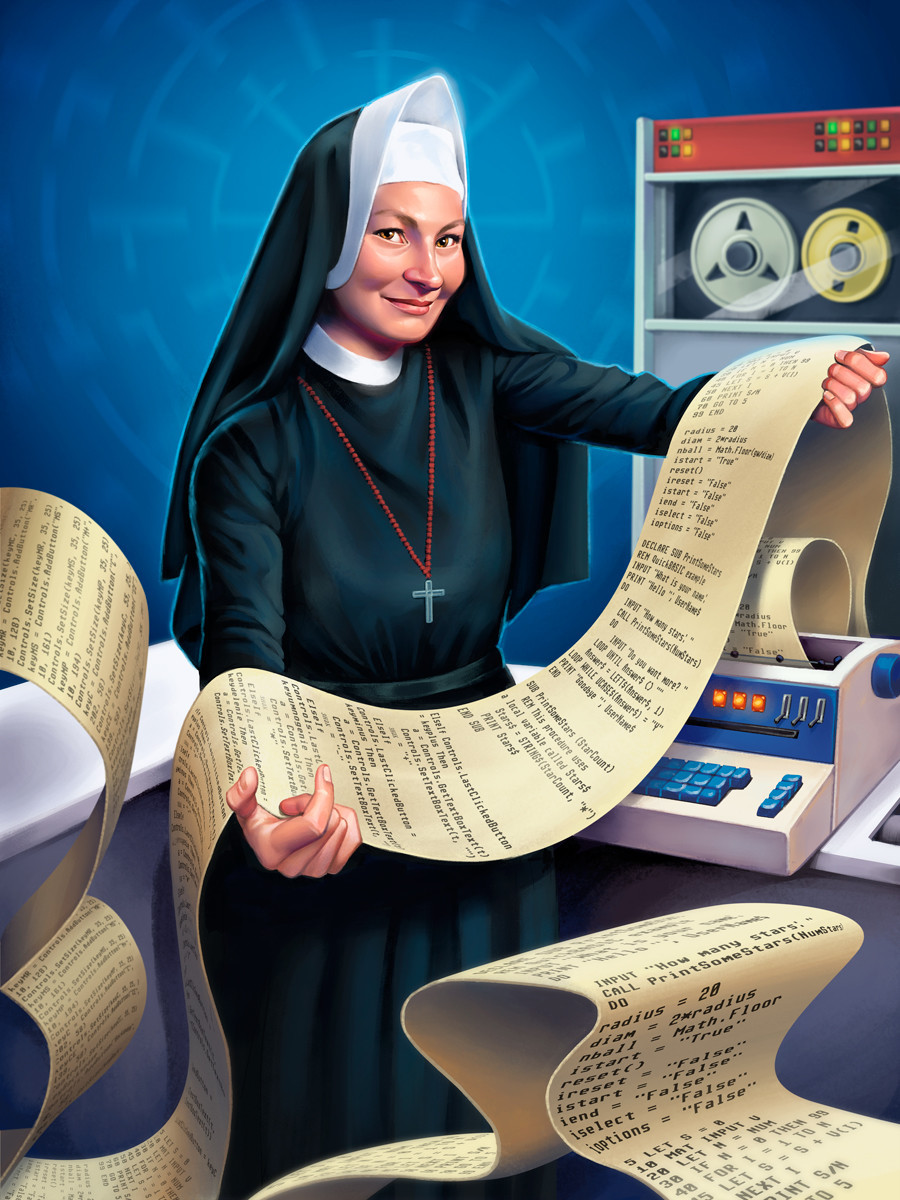
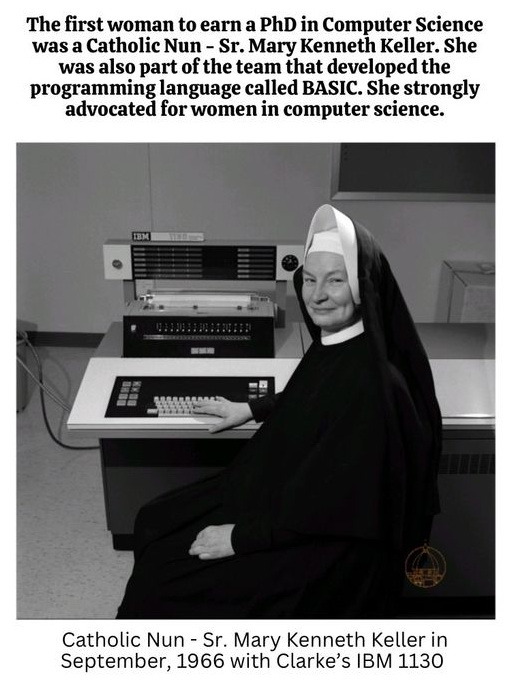
Throughout Keller's graduate studies, she was affiliated with
various institutions including the University of Michigan, Purdue, and
Dartmouth. Many sources claim that Keller began working at the National Science Foundation workshop in 1958 in the computer science center at Dartmouth College, a male-only institution at the time, where she participated in the implementation of the first DTSS BASIC kernel for the language, working under John G. Kemeny and Thomas E. Kurtz
along with about a dozen other students. But this cannot be correct
since Dartmouth did not acquire its first computer until 1959. Keller in fact was at Dartmouth sometime in 1961 when Dartmouth ALGOL 30 was being developed and used in undergraduate education.
Keller believed in the potential for computers to increase access to information and promote education. After finishing her doctorate in 1965, Keller founded the computer science department at Clarke College (now Clarke University), a Catholic women's college founded by Sisters of Charity of the Blessed Virgin Mary
in Dubuque, Iowa. That same year, that National Science Foundation
awarded her a grant of $25,000 payable over two years for "instructional
equipment for undergraduate education."One of the first computer science departments at a small college, Keller directed this department for twenty years.
Clarke College now has the Keller Computer Center and Information
Services, which is named after her and which provides computing and
telecommunication support to Clarke College students, faculty members,
and staff. The college has also established the Mary Kenneth Keller Computer Science Scholarship in her honor.


Keller was an advocate for the involvement of women in computing and the use of computers for education. She helped to establish the Association of Small Computer Users in Education (ASCUE). She went on to write four books in the field.
At the ACM/SIGUCC User Services Conference in 1975, Keller declared "we
have not fully used a computer as the greatest interdisciplinary tool
that has been invented to date."
Keller died on January 10, 1985, at the age of 71. 
Sr. Kenneth Gravestone at Mount Carmel, Dubuque, Iowa.
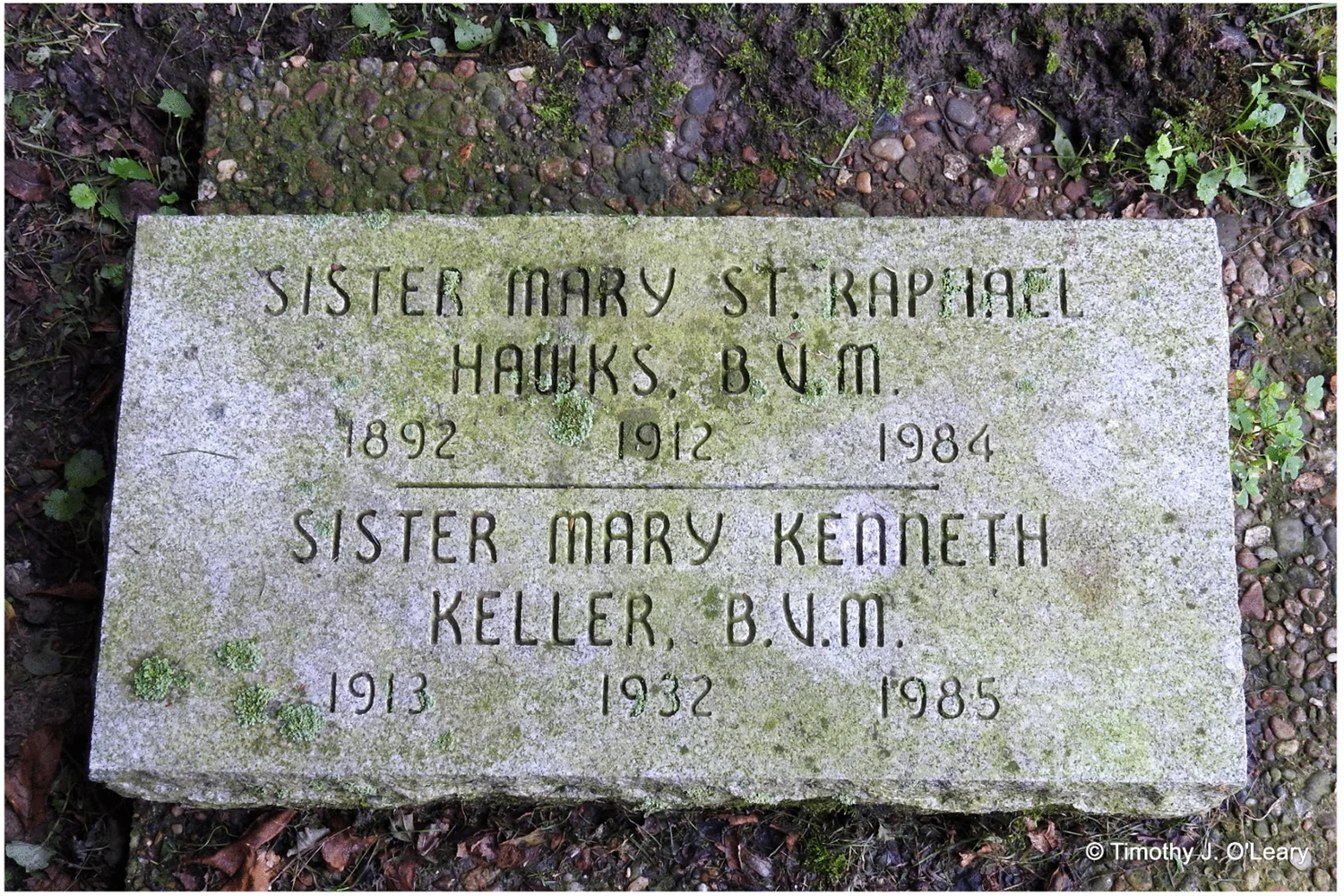
Sister Kenneth was true to her mission to the end. A sign in her office read, “My life is a continuing changing awareness of God’s will for me”. Catherine Dunn, BVM remembers that even as Sister Kenneth was dying in a nursing home, she had a computer in her bedroom. She continued to work, plan nutritious meals, and give lessons to other sisters. Sister Kenneth did not want to die: she felt she still had work to do. Nevertheless, Bertha Fox, BVM, reports that her last words were, “Yes, yes.” She died January 10, 1985.

To clarify, she was the first PERSON in the US to earn a PhD in Comp Sci - not just first woman.
👩💻⌨️🖱️🖥️💽🖲️🖨️💾💻💿👨💻📀🖥️🖨️⌨️💻🖱️💽💾💿👩💻
Breaking Barriers:
Mary Kenneth Keller
To clarify, she was the first PERSON in the US to earn a PhD in Computer Science - not just first woman.
👇 🖱️ 👇
https://youtu.be/Fxyjzp_4C6k?si=DF9GWqCl2JZJIdPG
To clarify, she was the first PERSON in the US to earn a PhD in Computer Science - not just first woman.
👇 🖱️ 👇
https://youtu.be/Fxyjzp_4C6k?si=DF9GWqCl2JZJIdPG
Dive into the remarkable story of Mary Kenneth Keller, a pioneering nun who left an indelible mark on the world of technology and education. As the first woman in the United States to earn a PhD in Computer Science, Keller's legacy transcends her groundbreaking achievement, highlighting her pivotal role in the development of the BASIC programming language and her efforts to make computer science accessible to all.
*Video Highlights:*
*Trailblazing Achievements:* Learn how Mary Kenneth Keller broke barriers in 1965 by earning a PhD in Computer Science, a first for women in the U.S.
*Video Highlights:*
*Trailblazing Achievements:* Learn how Mary Kenneth Keller broke barriers in 1965 by earning a PhD in Computer Science, a first for women in the U.S.
*BASIC Programming Language:* Discover Keller's instrumental role in creating BASIC, laying the groundwork for accessible computer programming education.
*Empowering Women in Tech:* Explore how Keller's work at Clarke College helped establish a foundation for women's significant contributions to technology.
*Why Watch?*
* Inspiration: Keller's story is a testament to the power of perseverance, vision, and the transformative impact of technology and education.
* Education: Gain insights into the early days of computer science and the pivotal moments that shaped the tech world we know today.
* Empowerment: Keller's legacy serves as a beacon for aspiring women in STEM, encouraging them to pursue their passions in technology and beyond.
*Empowering Women in Tech:* Explore how Keller's work at Clarke College helped establish a foundation for women's significant contributions to technology.
*Why Watch?*
* Inspiration: Keller's story is a testament to the power of perseverance, vision, and the transformative impact of technology and education.
* Education: Gain insights into the early days of computer science and the pivotal moments that shaped the tech world we know today.
* Empowerment: Keller's legacy serves as a beacon for aspiring women in STEM, encouraging them to pursue their passions in technology and beyond.
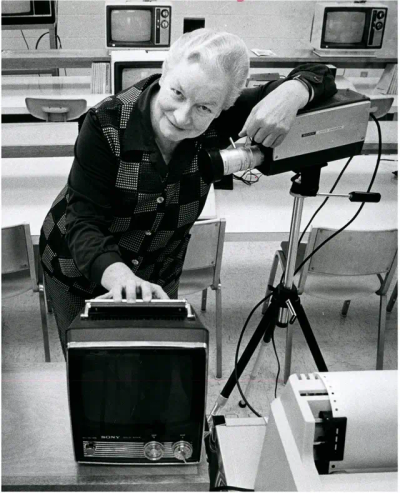
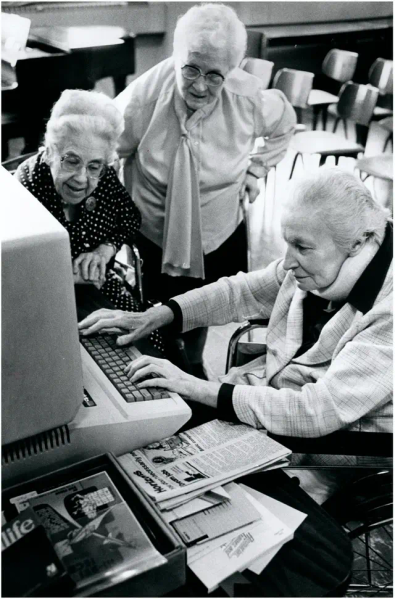
1 -Sister Kenneth at an August 2/3, 1967 conference at Clarke College on Hospital and Medical Applications of Computers.
2 -Sister Kenneth (right) in April, 1984, demonstrating computing to BVM sisters Gladys Ramaley and Marian Delany
2 -Sister Kenneth (right) in April, 1984, demonstrating computing to BVM sisters Gladys Ramaley and Marian Delany
👩💻⌨️🖱️🖥️💽🖲️🖨️💾💻💿👨💻📀🖥️🖨️⌨️💻🖱️💽💾💿👩💻
Catholic Women Sister Mary Keller
👇 🖱️ 👇
https://youtu.be/0T9VUgZWEzg?si=9MyxxAc0MRjrKOhd
👇 🖱️ 👇
https://youtu.be/0T9VUgZWEzg?si=9MyxxAc0MRjrKOhd
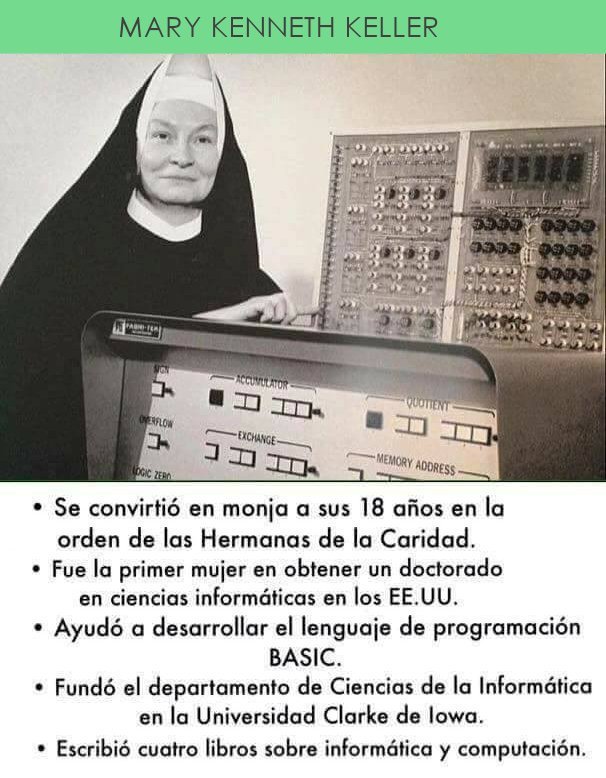

📖 📔 📙 📕 📗 📙 📘 📚 📒
The Legacy of Mary Kenneth Keller, First U.S. Ph.D. in Computer Science
https://www.computer.org/csdl/magazine/an/2023/01/10076929/1LFQ2k1iy40
📖 📔 📙 📕 📗 📙 📘 📚 📒
Religious Scientists: Sr. Mary Kenneth Keller B.V.M. (1913-1985) – Computer Science
When I was little, my dad bought an Apple II+ computer. Every Christmas, my uncle would send us a pack of computer games on 5.25-inch floppy disks. We spent countless hours playing those games on its primitive green pixelated screen. It was fun to play games made by somebody else, but even better was when I learned to make the computer do what I wanted it to do, with a little programming. I learned a very simple computer language called Beginner’s All-purpose Symbolic Instruction Code, or BASIC. With it, I made my own games, limited only by my imagination and skill. For the freedom that programming in BASIC gave me, I have to thank a nun: Sr. Mary Kenneth Keller.
https://www.vaticanobservatory.org/sacred-space-astronomy/religious-scientists-sr-mary-kenneth-keller-b-v-m-1913-1985-computer-science/
📖 📔 📙 📕 📗 📙 📘 📚 📒
https://www.computer.org/csdl/magazine/an/2023/01/10076929/1LFQ2k1iy40
📖 📔 📙 📕 📗 📙 📘 📚 📒
Religious Scientists: Sr. Mary Kenneth Keller B.V.M. (1913-1985) – Computer Science
When I was little, my dad bought an Apple II+ computer. Every Christmas, my uncle would send us a pack of computer games on 5.25-inch floppy disks. We spent countless hours playing those games on its primitive green pixelated screen. It was fun to play games made by somebody else, but even better was when I learned to make the computer do what I wanted it to do, with a little programming. I learned a very simple computer language called Beginner’s All-purpose Symbolic Instruction Code, or BASIC. With it, I made my own games, limited only by my imagination and skill. For the freedom that programming in BASIC gave me, I have to thank a nun: Sr. Mary Kenneth Keller.
https://www.vaticanobservatory.org/sacred-space-astronomy/religious-scientists-sr-mary-kenneth-keller-b-v-m-1913-1985-computer-science/
📖 📔 📙 📕 📗 📙 📘 📚 📒
Sister Mary Kenneth Keller (PhD, 1965): The first PhD in computer science in the US
Posted on March 18, 2019
Keller was a trailblazer in higher education. She worked tirelessly to expand the reach of computer science. She was a founder of the Association of Small Computer Users in Education (ASCUE), an organization still active today that furthers the use of technology in education. She recognized the massive potential of the computer as an instructive tool.
https://www.cs.wisc.edu/2019/03/18/2759/
Posted on March 18, 2019
Keller was a trailblazer in higher education. She worked tirelessly to expand the reach of computer science. She was a founder of the Association of Small Computer Users in Education (ASCUE), an organization still active today that furthers the use of technology in education. She recognized the massive potential of the computer as an instructive tool.
https://www.cs.wisc.edu/2019/03/18/2759/

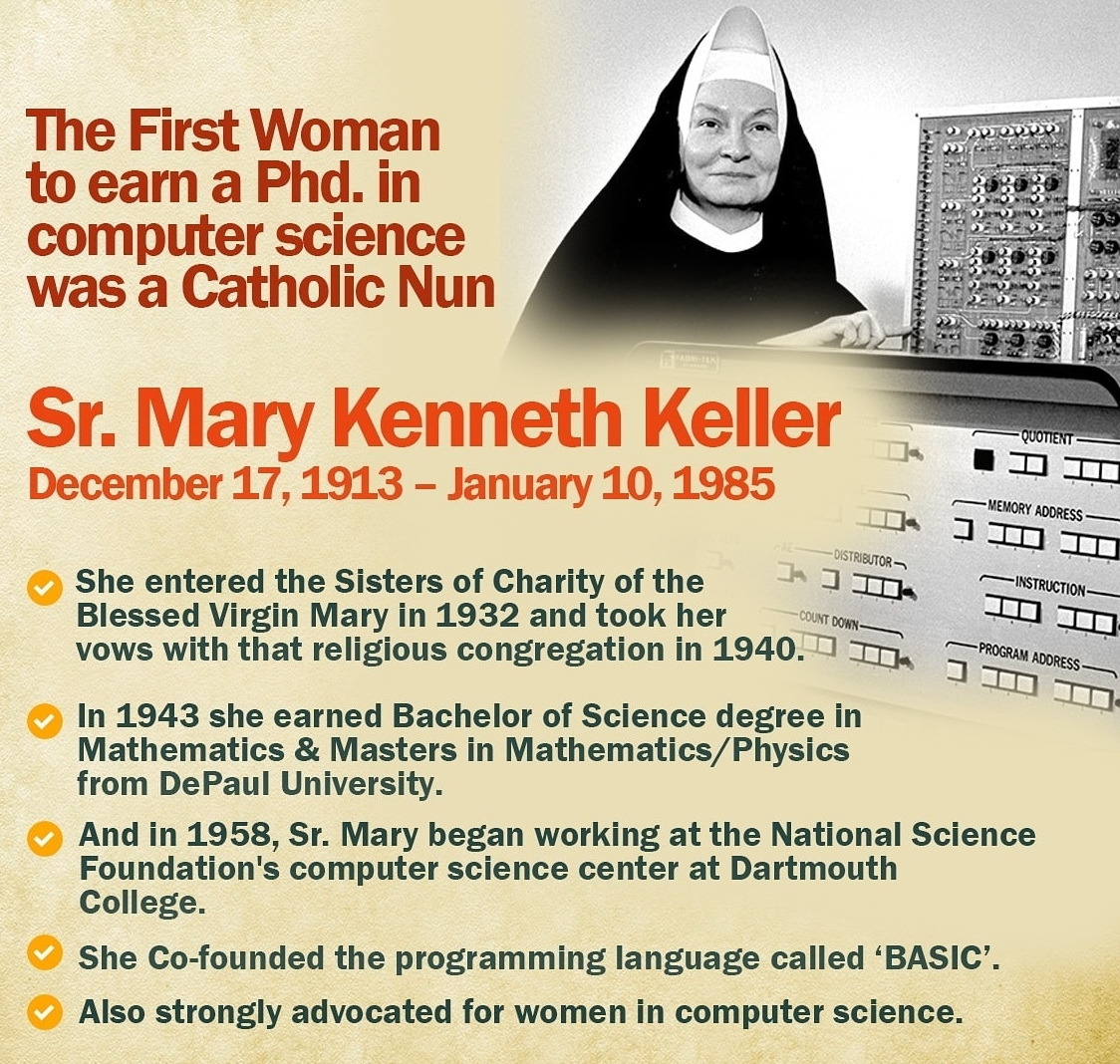
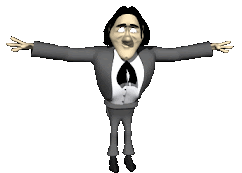
.gif)
No comments:
Post a Comment